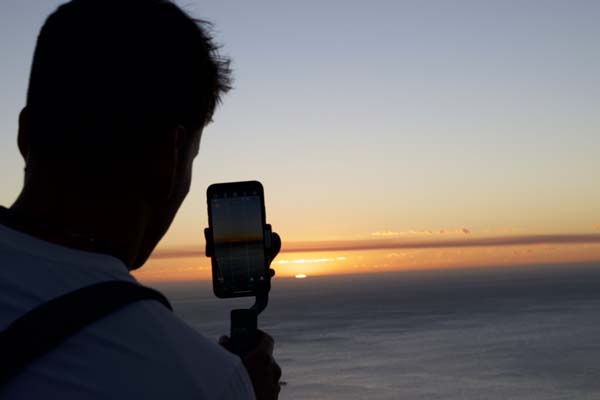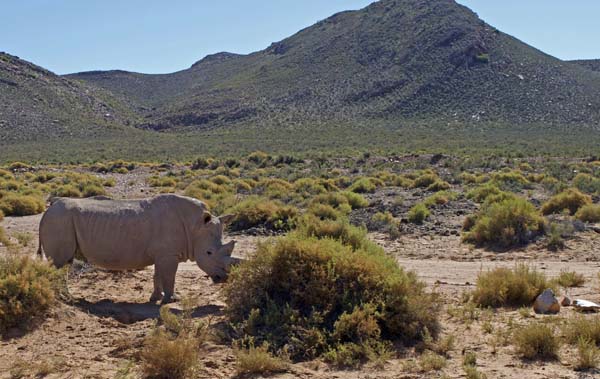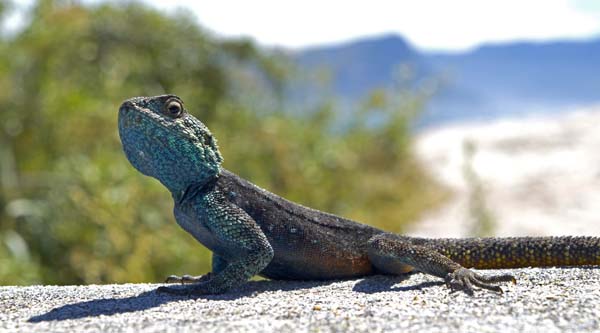Like this article?
Go on, give it a kudu!

Published on May 14 2021
Written by:
African Queen
2087 views
Travel to Africa—it’s finally becoming a reality again for US travelers who’ve been patiently, and not-so-patiently, waiting to go on safari. Your African Safari is liaising with travelers who’ve recently returned from Africa to learn more about their personal travel experience regarding PCR tests, vaccinations, quarantining and going on safari. To get the inside scoop on what it’s like to travel from the US to South Africa right now, we spoke with one traveler, Joe, about his recent experience in a post-pandemic world.

Joe capturing the sunset at Chapmans Peak Bay
A negative PCR COVID test was required within 72 hours of departure. Although Joe had a valid rapid PCR test performed, when he arrived at JFK, he was informed that the rapid test was not accepted and that he’d need a real-time PCR test. Luckily, he was able to have the test done on-site, at JFK, and health insurance covered much of the cost.
Turkish Airlines were diligent in their adherence to CDC guideline. Although the flight was full, with no middle seats left open, hygiene packages, which included a spare mask, hand sanitizer and sanitary wipes, were distributed to passengers before boarding the plane. The flight was around 10 hours and passengers were suggested they change masks every four hours, and provided fresh masks if needed, but they were not required to do so.
After nine hours in Istanbul, where a negative PCR test was required, Joe took his second 10-hour flight to Cape Town. The same preventative measures that were taken on the first leg of the journey were also taken on this flight.
Upon arrival in South Africa, passengers were required to produce a negative PCR test less than 72 hours old. Self-isolation and quarantining were recommended for a period of two weeks upon arrival into Cape Town, but not mandated.

Chapmans Peak Bay
South Africa was more cautious and efficient in preventative measures. In public places such as stores and restaurants, social distancing was strictly enforced. There was often a staff member placed inside the entrance to sanitize hands and, in some instances, take down details such as name and phone number, should the person need to be contacted in the event of someone testing positive.

Travelers looking to go on safari in South Africa should expect the following, at least through the end of 2021.

Southern rock agama, Boulders Beach
Cape Town also requires a negative PCR test taken within 72 hours of departure. The test was easy to book and was done at a hospital to ensure a quick turnaround on results. Joe’s results were ready within 24 hours, and the cost was around 850 Rand, which currently is about $60 US.
Prior to landing in the United States, passengers were required to fill out a form with their tracking info, which asked for details such as address, age, countries visited prior while outside of US. After returning home, Joe received follow up calls asking him to self-isolate for 14 days. The calls ceased once the two weeks had passed.
As of April 2021, a valid PCR COVID test is still required for all international arrivals into South Africa and the United States, even if you’re fully vaccinated.
Your African Safari
Interview with Joe Garcia
Has been on: 10 safaris
I would say I'm an amalgam of luxury and back-to-basics. My most memorable lodging experience was in a basic tent in the Serengeti. Absolutely thrilling. My dream is to see a pangolin.
© Your African Safari Ltd, All rights reserved.
Your African Safari is a safari-planning and safari review site. It was created to help support a healthy African wildlife population. All reviews are vetted before being approved and only ethical tours are published